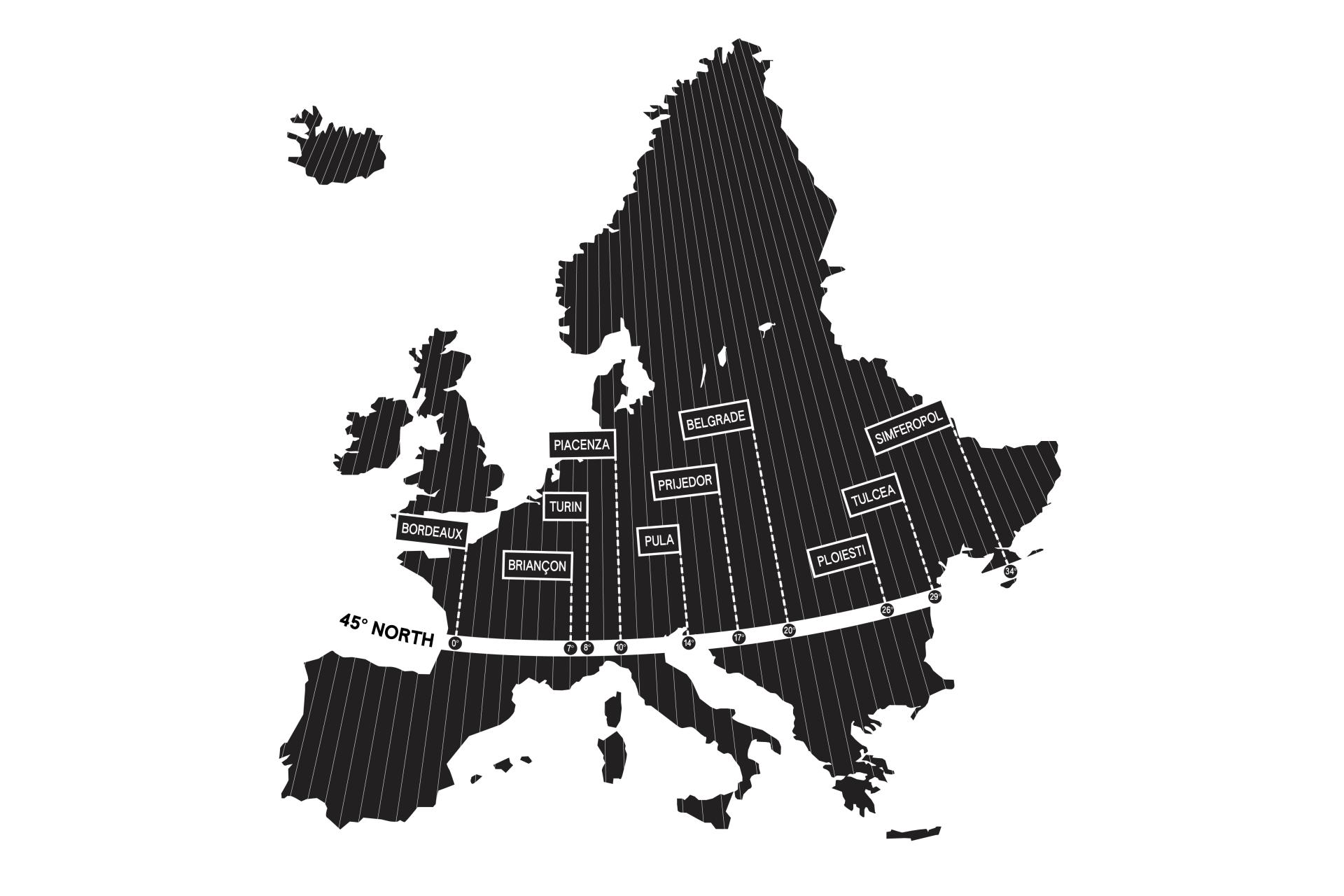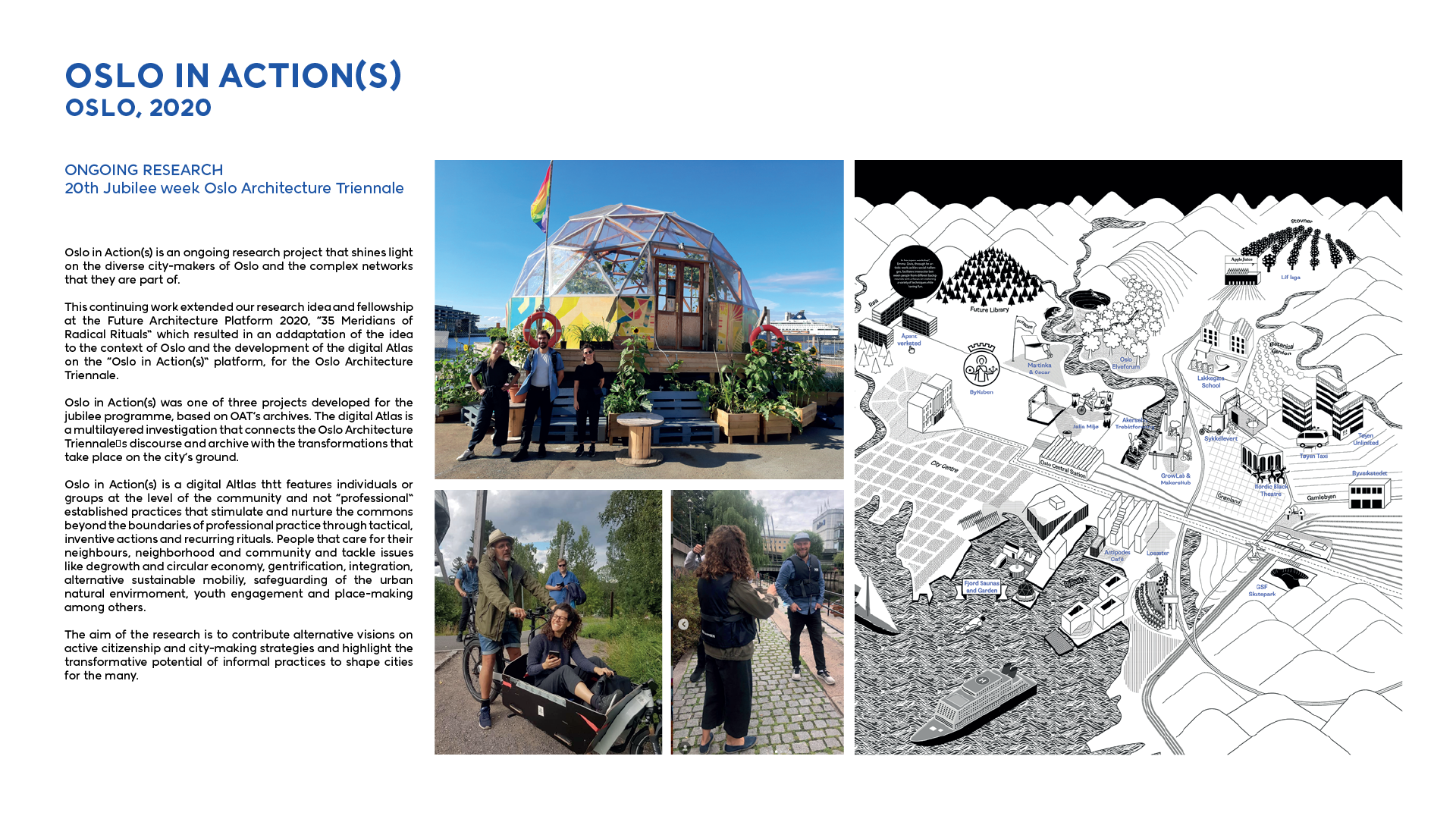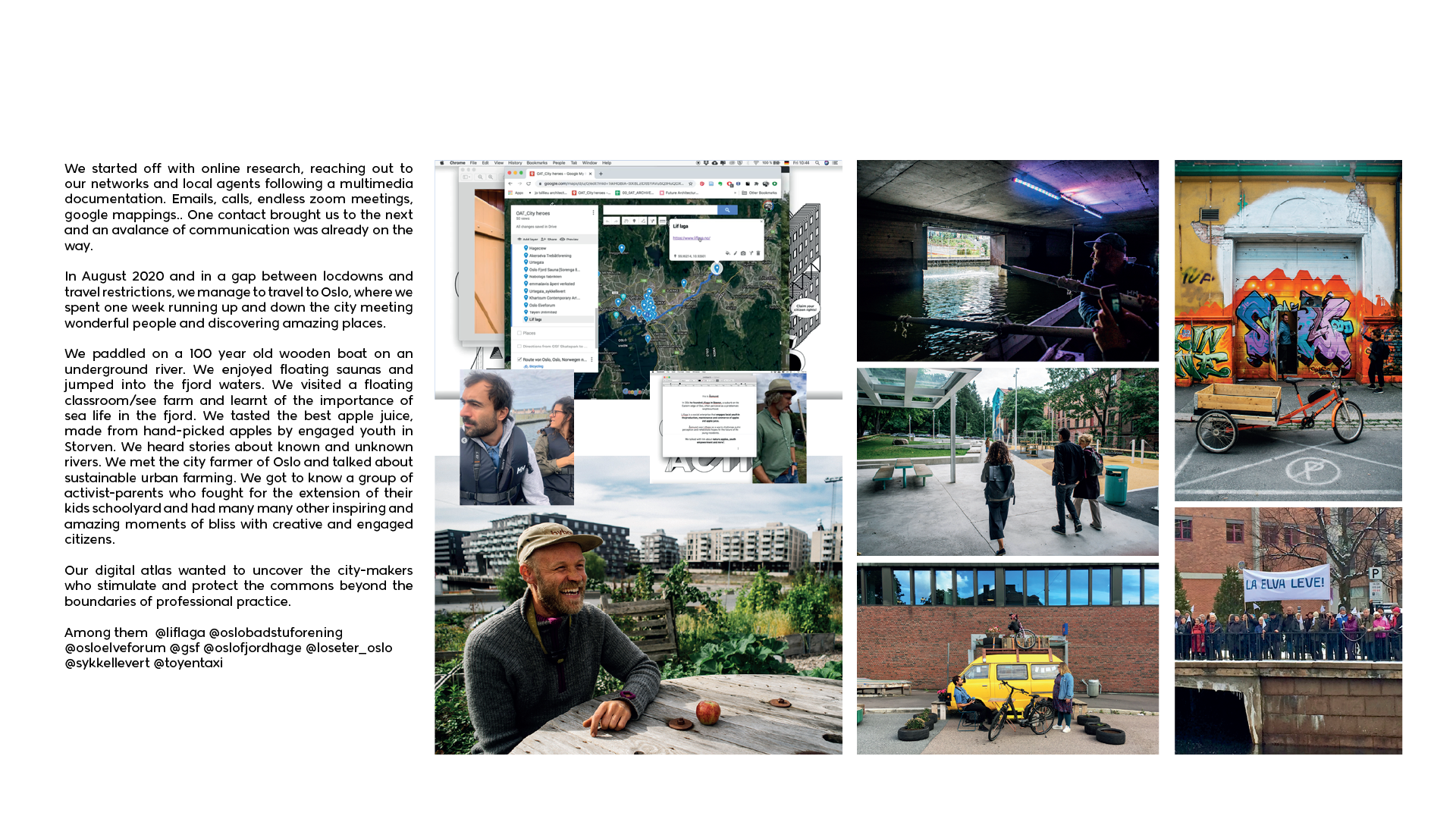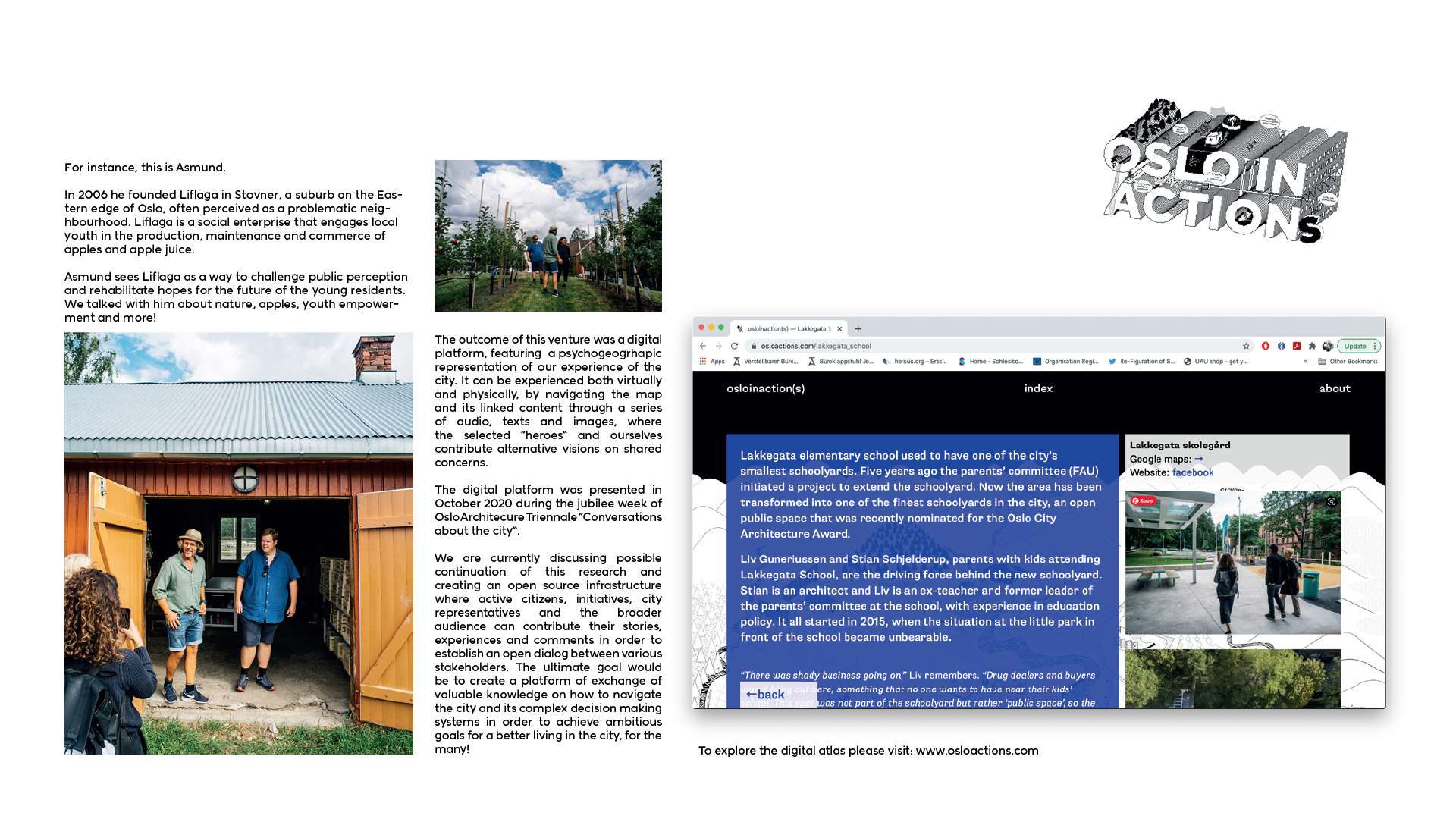Radical Rituals
Basic information
Project Title
Full project title
Category
Project Description
Radical Rituals is an itinerary survey along the 45ºN parallel, on the inventiveness of everyday life, new hybrid vernacular practices, and rituals that stimulate and nurture the commons across Europe, beyond identity and borders. We want to document the unsung stories of diverse local space-making initiatives and their complex networks. Through this project, we will build an open-source platform to foster collaborations between initiatives on Europe's ground.
Project Region
EU Programme or fund
Description of the project
Summary
For too long, we have been creating top-down fixed structures to read our planet, trying to describe the world as a whole. We may now recognise the urgency of focusing on conviviality across scales and beings to develop new paradigms. This proposal will investigate Europe through a new real-fictional space, following an exemplary line: the 45ºN parallel. Europe is a hybrid place in constant mutation, formed by movements of people, knowledge, and goods; with multiple climates, geographies, languages, and borders marked by socio-economic and geopolitical struggles. The European culture and values have been developed under the abstract thinking of the “European condition”. Today, after thirty years of its foundation, there is no clear understanding of the attributes that bring a coherent and cohesive narrative of our diverse European identity.
The 45ºN parallel is not just a line but a 3dimensional space yet to be explored. Contrary to the extraordinary experiences of the hegemonic constitutions of Europe, we will focus our research on the novelty of everyday life, where glimpses of radical innovation foster alternative futures. We will bring ideas together collectively and produce a method of thinking rather than profit-oriented outputs. We see great potential in the local practice and knowledge for creating further alternatives to the current crisis. This time, geopolitical and social paradigms could be deployed for the re-imagination of collective politics, narrated by the communities inhabiting the ground, creating a new identity that does not develop through the growth of the global market but through the development and awareness of common values. We want to challenge the introverted, egocentric idea of this land and foster an alternative and inclusive narrative of Europe.
Key objectives for sustainability
In the midst of the current COVID-19 pandemic, climate crisis, Brexit, walls and floating sea barriers, and, in a general fear of otherness, our capacity to imagine ways to move forward or think of a solution by design is critical. In this context, current generations have the duty to propose alternative futures and forms of existence that are not based on extractive technologies and economies, learn from practices that foster complex connections through conviviality and sustainable development. We want to contribute to the critical thinking of our role as architects and researchers as agents of change. Hence, investigating the soft systems of cities, the potential of local communities to reinvent common space-making and see how local initiatives are mitigating different faces of the crisis developing sustainable solutions through resilience and care. We look at those practices as ‘rituals’ because they strengthen the capacity of collective action to reach ambitious goals like climate justice, inclusion, sustainability; and ‘radical’ because they are coming from imaginative and creative scenarios, but at the same time, they transform their contexts and beyond.
The sustainability of the project lies in its open format. It is intended to be an ever-evolving process, open to experimentation and exchange of shared values and resources, strengthening networks among communities and agents. It can develop and evolve along with the needs of the communities and the platform itself. The open-source strategy aims to allow direct involvement of every agent along the way and enable replicable methods to promote better relations and ways of living together. We will focus on projects and initiatives that foster the capacity to generate alternative visions on active citizenship, non-disciplinary space-making strategies, and learning processes.
Key objectives for aesthetics and quality
Radical Rituals is thought to be an ongoing research built upon multiple iterations and a sequence of online research, outreach activities, field trips, events, and dissemination of the findings through a digital platform. How to learn from existing practices, transmit and expand the qualities of distributed knowledge into systemic changes?
We will create an archive of practices to unpack rituals that engage with each other beyond fixed structures, establishing connections across contexts, space and relations. Initiatives that mediate between individual ambitions and collective needs while creating a new understanding of the commons on a wide range of physical contexts. Actions that intend to produce affections rather than objects and mainly survive through maintenance and care, technologies and social media that offer space for new subcultures, gestures and habits. At a time of constant competition and striving for growth, we see the urgency for multidimensional, non-disciplinary visions to face complex challenges.
The main output will be a digital, open-source, non-commercial platform: a living collection of stories, items, objects, illustrations, essays, and articles about our findings, that we hope can uncover the relevance of collective actions which generate alternative visions on active citizenship and non-disciplinary space-making strategies or learning processes. At the end of this journey, we might foresee transformations and unexpected relations between case studies by focusing on their common environmental conditions -context, space, and relations. This research is intended to be an ever-evolving format, open to experimentation, and the itinerant survey's unpredictable findings.
Key objectives for inclusion
We believe that the future of a more just practice of space-making lies unseen in a myriad of everyday rituals spanning multiple locations and agents, in heterogeneous spaces. Thus, where pioneering spatial configurations and new commonality occur through alternative organisational structures, non-commercial activities, and extraordinary tactics that foster new imaginaries through participation and emergent learning processes. Along the 45ºN parallel, Bordeaux, Belgrade, Toulouse, Pula, Tulcea, or Simferopol, serve as starting points for our research. This cartographic approach allows us to spotlight the incredible variety of conditions that can help us shift notions of centre and periphery within the European context. We want to get in touch with local actors and will employ a diverse range of mediums to document their methodologies and ways of doing: digital mappings, photo, video documentation, and online interviews to explore existing, emerging, or leading practices. These case studies are linked to physical and virtual spaces trying to amplify the discourse throughout the transformations on Europe´s ground.
We are working along with the following partnerships:
A/ STRATEGIC PARTNERS. Projects and organisations with common interests and backgrounds to enrich the intellectual and research capital of the project. TiriLab, Floating University, Ministry of Space.
B/ PARTNERS. Institutions for long-term collaborations. Future Architecture Platform, Architectuul, Oslo Architecture Triennial, Akademie Schloss Solitude, Goethe Institute, KW Institute for Contemporary Art, DOMUS.
C/ ADVISORY BOARD. Inspiring individuals to enrich the process, among others: Elise Misao Hunchuck, Dubravka Sekulic, Ethel Baraona Pohl, Michiel van lersel, Davide Tommaso Ferrando.
D/ LOCAL AGENTS. The target group of our research. The main goal is to create synergies with initiatives and collective projects on the ground, learning from their own networks and values.
Innovative character
Among the many terms that could be used to define the contemporary era, we can start from the premise of a paradigm shift. The posthumous has become a normalised state in all human and non-human life actions. However, this crisis we are facing has disrupted that process of acceptance, opening up fundamental questions. Suppose we decide to speak of the death of a paradigm from an apocalyptic perspective. In that case, we, in all our physicality, are instantly brought to a state of emergency. In our situation, we can choose to act based on the anxiety of urgency; or we can see things from the perspective of an opportunity to create a new paradigm, taking advantage of the fertile gap between emergency and emergence. In other words, the plethora of possibilities and practices that may emerge in the current crisis. If this is the case, we may choose to call upon the empowerment of bodies, institutions, organisations, systems, and communities to take back control of this new paradigm from a political and cultural perspective, placing life at the centre of the debate.
Looking at rituals arising from the emergent actions and conditions across territories, the methodology of this exploration will be based on spatial analysis of the cases across scales: context, space, and relations. These scales are intimately related to the terrain, to our physical environment and in our case, with Europe’s ground. An array of local examples will unveil the micropolitics of the land. Through this exercise, we will bring forward the relevance of our environmental knowledge. In doing so, we will unpack the scales where relations, knowledge, and, ultimately, space are being produced. We will explore the boundary conditions that enable and promote these alternative rituals of space-making. Aiming at expanding the current notion of design and architecture, recognizing the innovative value of distributed knowledge to draw a line that can bring Europe together.




